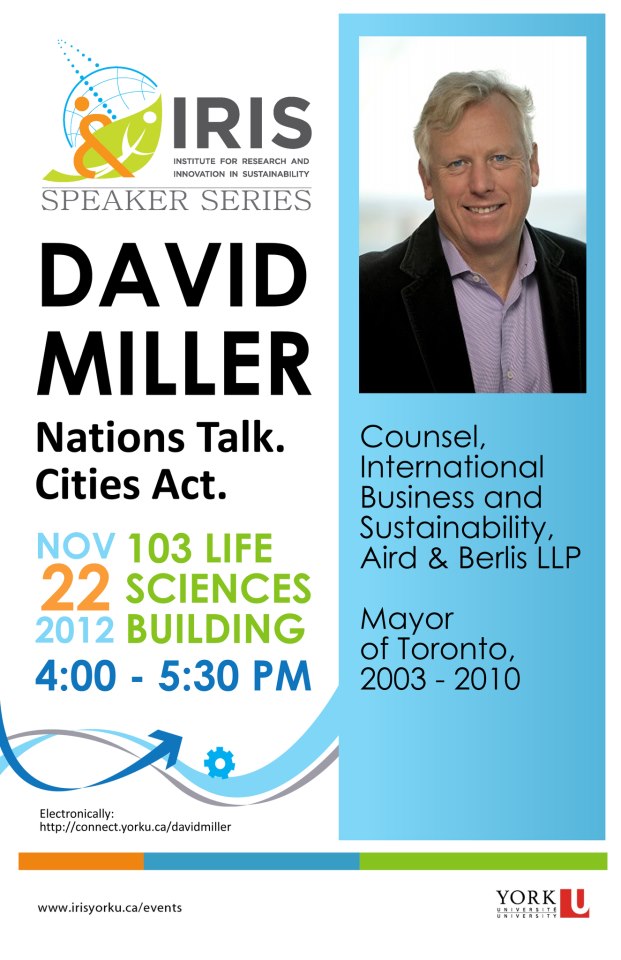Nov 7, 2012
1:30 - 3:00 pm
280A York Lanes
York University, Toronto
To mark the recent release of Environment and Citizenship in Latin America: Natures, Subjects and Struggles, join us as we host one of the book’s editors, CERLAC Associate Fellow Alex Latta, for a talk emerging from the central themes of the collection.
Drawing on the contributions to the book, as well as related literature and his own research, Dr. Latta will explore the ways nature becomes constituted as a resource, an object of knowledge, a target of governance and a focus for political struggle in Latin America. How are human political subjectivities simultaneously implied, activated, contested and reinvented in these constitutive moments, spaces and processes? Beyond a concern for the rights and responsibilities of “environmental citizens”, the talk will reach for a conception of citizenship that is fundamentally relational across dynamic assemblages of human and non-human elements.
Alex Latta is Associate Professor in the Department of Global Studies and the Balsillie School of International affairs, at Wilfrid Laurier University. His research considers the politics of water, energy and environmental justice in Latin America, with a recent focus on conflicts over hydroelectric development in Chile.
Everyone welcome
More info: cerlac@yorku.ca





 Abstract: Ozone layer depletion due to man-made emissions, mostly chlorofluorocarbons (CFCs) and some bromine containing chemicals, have been recognized and addressed via the Montreal Protocol (MP). The successful phase out of ozone depleting substances, listed but not defined by the MP, led to the use of other chemicals that do not deplete the ozone layer. Hydrofluorocarbons (HFCs) were one such class of compounds that have found increasing use over the years. The Montreal protocol has been credited with helping the climate change issue by phasing out, CFCs, many of which are also powerful greenhouse gases. Many HFCs are also potent greenhouse gases and their increasing use can offset the benefits gained to date. Lastly, all chemicals that can deplete the ozone layer are not necessarily included in the MP and raise the question regarding inclusion of other chemicals in the protocol. A prime example is nitrous oxide, which we argue is the most important ozone depleting gas that is being emitted today. I will discuss the phase in of HFCs, in place of CFCs, and its impact on climate as well as the role of nitrous oxide as an ozone depleting gas. I will discuss the atmospheric science of these chemical as well as their implications to decision making.
Abstract: Ozone layer depletion due to man-made emissions, mostly chlorofluorocarbons (CFCs) and some bromine containing chemicals, have been recognized and addressed via the Montreal Protocol (MP). The successful phase out of ozone depleting substances, listed but not defined by the MP, led to the use of other chemicals that do not deplete the ozone layer. Hydrofluorocarbons (HFCs) were one such class of compounds that have found increasing use over the years. The Montreal protocol has been credited with helping the climate change issue by phasing out, CFCs, many of which are also powerful greenhouse gases. Many HFCs are also potent greenhouse gases and their increasing use can offset the benefits gained to date. Lastly, all chemicals that can deplete the ozone layer are not necessarily included in the MP and raise the question regarding inclusion of other chemicals in the protocol. A prime example is nitrous oxide, which we argue is the most important ozone depleting gas that is being emitted today. I will discuss the phase in of HFCs, in place of CFCs, and its impact on climate as well as the role of nitrous oxide as an ozone depleting gas. I will discuss the atmospheric science of these chemical as well as their implications to decision making.
